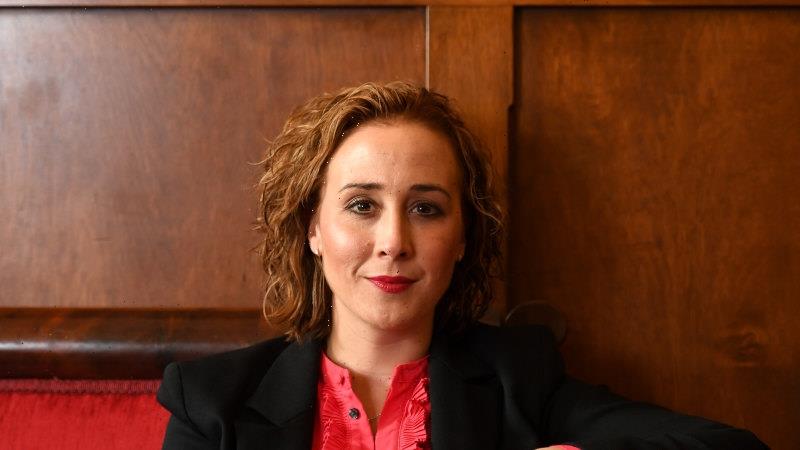A CRYPTO wallet can help store your Bitcoin or other virtual currencies.
There are a few ways to hold Bitcoin or other virtual currencies when you are buying or selling the virtual coins. Here is our pick of the best crypto wallets.
🔵 Read our cryptocurrency live blog for the latest Bitcoin updates
Firstly, remember investing in cryptos is VERY risky and it is important to understand the what you are investing in.
There's no guarantee you can convert coins back to cash and fees and charges are usually higher than with regulated products.
Also, you don't have the same protection as you do with regulated investing. For example, if something goes wrong then you can't take it to an ombudsman and have no recourse for compensation.
You can store your cryptocurrencies on the exchange where you buy them or hold it in a wallet.
A crypto wallet is different to a purse or accessory you use to carry your cash around.
There are two types, known as hot or cold wallet.
A hot wallet stores your cryptos online and you will need your unique private key and a password to login.
5 risks of crypto investments
THE Financial Conduct Authority (FCA) has warned people about the risks of investing in cryptocurrencies.
- Consumer protection: Some investments advertising high returns based on cryptoassets may not be subject to regulation beyond anti-money laundering requirements.
- Price volatility: Significant price volatility in cryptoassets, combined with the inherent difficulties of valuing cryptoassets reliably, places consumers at a high risk of losses.
- Product complexity: The complexity of some products and services relating to cryptoassets can make it hard for consumers to understand the risks. There is no guarantee that cryptoassets can be converted back into cash. Converting a cryptoasset back to cash depends on demand and supply existing in the market.
- Charges and fees: Consumers should consider the impact of fees and charges on their investment which may be more than those for regulated investment products.
- Marketing materials: Firms may overstate the returns of products or understate the risks involved.
Alternatively, a cold wallet stores your cryptocurrency data offline such as on a USB stick.
All these storage methods have their own risks plus investing in cryptos is risky as pricing is volatile and you could lose all your money.
Leaving your cryptos on an exchange gives you less control and there may be management fees.
There are no fees to hold your cryptocurrency in a wallet but there will be transaction charges when you want to buy or sell more.
This is based on how much demand there is on the blockchain network where deals are processed at the time.
One of the main risks with both crypto exchanges and wallets is data breaches.
Several exchanges and wallets have been hacked in the past and it can be hard to get your money back if this happens as these platforms aren’t regulated so there is little consumer protection.
Hot wallets are usually free to download and manage on your smartphone but it can cost up to £100 or more to buy a USB stick if you want to hold your cryptos offline.
There is a risk with a cold wallet that if you lose your USB, you will lose all your cryptos.
Here are some of the best crypto wallets.
Most recognised exchange and wallet – Coinbase
Coinbase is the largest cryptocurrency exchange in America and was the first crypto-trading platform to go public earlier this year.
It lets users buy and sell cryptos such as Bitcoin but also operates its own hot wallet that lets users store their virtual currency online.
The Coinbase wallet can be downloaded onto an Apple or Android smartphone and there is even a Chrome extension that lets you connect to other crypto apps such as if you want to send virtual money.
Users can also earn interest on their cryptos by lending it out through the app.
Popular and established – Blockchain
Blockchain is one of the most popular crypto wallets.
It was one of the first Bitcoin wallets on the Apple Store and has attracted millions of users since launch in 2011.
The wallet can be used on a desktop and mobile and similar to Coinbase, users can earn interest by lending their cryptos to others.
Best for beginners – Exodus
Exodus lets users hold a variety of cryptocurrencies including Bitcoin, Ethereum and Dogecoin.
It also has its own exchange where you can buy and sell cryptocurrencies.
The wallet can be downloaded for free on a Apple or Android smartphone and is rated as the best crypto storage for beginners by Investopedia.
Top mobile app – Mycelium
The Mycelium app has been around since 2013, making it one of the oldest and more established Bitcoin wallets.
Technology magazine Techradar rates it as the best wallet for using on the move.
Users can set their own transaction fees, which can mean trading takes longer as you have to wait for someone to agree to your rate when processing a transaction.
Mycelium is only available on smartphones so you can't access it on a desktop and the main cryptos you can hold are Bitcoin and Ethereum.
Low cost cold wallet – Ledger Nano S
Cold wallets are more pricey than storing your cryptos online as you have to pay for a USB or other hardware.
These devices can cost hundreds of pounds.
There is a low cost option if you want to store your cryptos offline though.
The Ledger Nano S costs £41 and can hold data on more than 1,500 cryptocurrencies.
The price of Bitcoin slumped again this week after former US President Donald Trump branded the world's largest cryptocurrency a "scam"
It comes as El Salvador became the first country to recognise Bitcoin as legal tender.
See what new crypto regulations could mean for investors.
Source: Read Full Article








